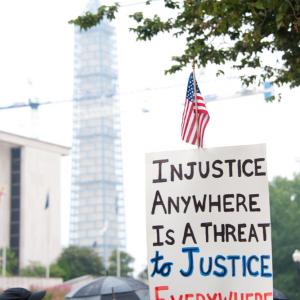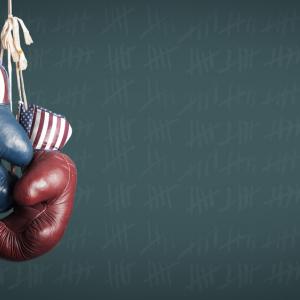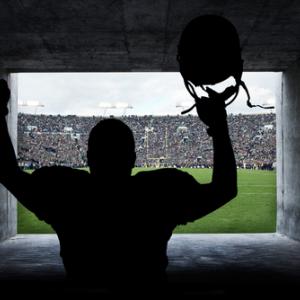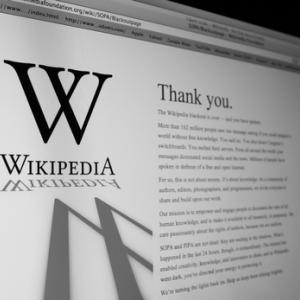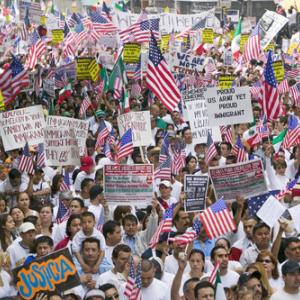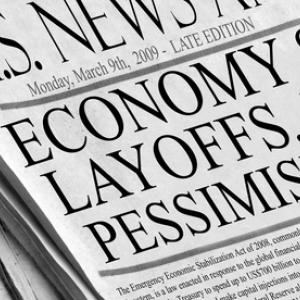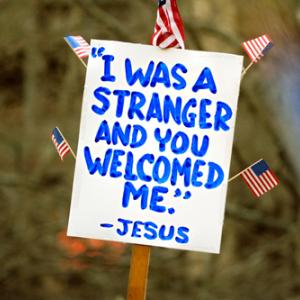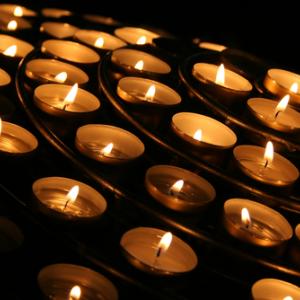
Matthew Skinner is a native Californian who now braves Minnesota winters, serving as Professor of New Testament at Luther Seminary in Saint Paul. His research interests focus on the Gospels and the book of Acts, the cultural world reflected in the New Testament, and the Bible's potential for shaping the theological imaginations of its readers. Sought-after nationally as a teacher for conferences and congregations, he helped create the free site EnterTheBible.org and contributes frequently to WorkingPreacher.org. He’s part of the team that produces Sermon Brainwave, a free weekly podcast for preachers and others exploring the biblical texts assigned by the Revised Common Lectionary. He is an ordained minister in the Presbyterian Church (U.S.A.). His most recent book is The Trial Narratives: Conflict, Power, and Identity in the New Testament, and he coedited Shaping the Scriptural Imagination: Truth, Meaning, and the Theological Interpretation of the Bible. For more information and more of his writings, visit MatthewSkinner.org.
Posts By This Author
When Patience Becomes Complacency: Why We Can't Wait
Why We Can’t Wait is the familiar title of Martin Luther King Jr.’s book from 1964. The volume includes his famous “Letter from Birmingham Jail” (written April 16, 1963) and makes an argument to recognize 1963 as the beginning of “the Negro Revolution” while extolling the effectiveness of nonviolent resistance.
King’s “Letter” issues a call for urgency. He wrote it as a response to eight local white clergymen who had criticized his activities in Birmingham and appealed for a more patient and restrained approach to lobbying for civil rights. The “Letter” expresses King’s deep disappointment with “the white moderate,” who “paternalistically believes he can set the timetable for another man’s freedom.”
Exposing a Government's Abuse of Power
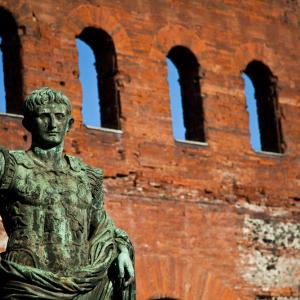
Image via PerseoMedusa / Shutterstock.com
Stop me if you’ve heard this story before. It’s familiar to many. The story features a culture that treats people like commodities, valuing them only insofar as they produce wealth.
The Most Powerful Woman in the World

Detail from Antonello da Messina's "Annunciata." Image via Gandolfo Cannatella / Shutterstock.com
National Geographic magazine recently named Mary, the mother of Jesus, “the most powerful woman in the world” as an appraisal of her ongoing influence and popularity. But do Mary’s words and example have a prayer of being heard and effecting change in this time of war?
Indeed, this is war. America has effectively been engaged in continuous warfare since the weeks after September 11, 2001. In a few decades we’ll learn what happens when whole generations of people grow up and take charge of a society that has waged war their entire lives.
Attempts to tone down the descriptions we use for warfare or the way we conceptualize the present conflict don’t change anything. No end is in sight. Others turn up the rhetoric: after the San Bernardino shooting, at least one presidential candidate insisted the USA now finds itself in “the next world war.” Another one puffed up his chest and boasted of his resolve to “carpet bomb” people. We hear this stuff so often, we’ve become numb to its magnitude.
Sorry, Presidential Candidates: Hope Resides in Groans, Not in Your Rhetoric
It’s the season of hope.
We rely on hope as a force to inch us forward. No one wants to believe that our best days as individuals or as societies are behind us. Everyone wants to be a hopeful person. Or, at least, there are plenty of people out there eager to make sure everyone feels hopeful.
It’s a season when we’re urged to look for things — data, leaders, movements, promises, trends, exemplars — to provide the ground for hope. For others, it’s a time for sarcasm and mockery.
Daring to Hope in the Stress of Uncertainty
Many people fear death. It’s an understandable fear. And one that’s socially acceptable.
But shouldn’t we also admit that living can be scary as hell, too?
As any fan of The Walking Dead and other apocalyptic fiction knows, it doesn’t take much for the lines between order and chaos, between civility and mayhem, and between trustworthiness and falsehood to be exposed as thinner than advertised.
We aren’t given a choice. We navigate a world in which we exercise little real control.
Co-pilots aren’t supposed to crash commercial jets.
States can't just grant individuals and businesses the right to discriminate against under-protected groups under some squishy definition of "religious freedom," can they?
We may never learn where those two-hundred-plus Nigerian girls were taken, the ones kidnapped from their school — their school! — nearly one year ago.
Why does NIMBYism derail so many good-faith and promising efforts to help rehabilitate released felons and other at-risk populations?
What part of the world that I can barely locate on a map has my country decided to bomb for me today?
Confidence and fear travel through our veins, compelling us, as they act out their odd, entangled relationship. We rarely have the luxury to see where our choices will lead us. We’re swept along by others’ choices and barely detectable forces.
Anxiety is more than a devious marketing strategy in cable news channels’ portfolios; it arises from life’s uncertainties. It’s a way our bodies ask whether we can trust those yearnings that give birth to our hopes for a society that truly flourishes.
Who doesn’t live by some kind of faith? Such “faith” can be a reliance on effort and intelligence, a willingness to surrender to risk, a retreat into the security of privilege, a decision to live for others, or a resigned acceptance that at least we’ll have company when disaster strikes. What, finally, compels us forward?
The Super Bowl and the Church in a Culture of Dominance
Americans enjoy football because, to a degree, football reflects the values of strength, courage, strategy, self-discipline, teamwork, and celebrity that American culture holds dear. It’s also refreshing to watch someone else get crushed by a 260-pound linebacker after you’ve had a lousy week at work.
The problem develops when we let football (or other sports, or a military, or corporations, or other forces) define strength in terms of dominance.
I’m not trying to dump on football. I’m noting that it’s a game largely devoted to imposing one’s will on another. That competitive value can be fine on a field, but when it seeps into our society, neighborhoods, and families we should be wary.
Because when dominance is the name of the game, there will be victims.
The Super Bowl might prompt us to consider the hazards of an ethos in which rewards go to those who say “We take what we want” and follow through on it.
Why You Ought to Leave the Church
Recently, a large wealthy church decided to break up with my denomination. I’m not 100 percent sure I know why. But the no-regrets explanation they wrote implied that religious differences between us were too severe for them to stay committed to our relationship.
Religion has a way of making people do extraordinary things to create peace and unity. It also, as we know well, has a destructive capacity to turn people against one another. It can make us grip our convictions so tightly that we choke out their life. We chase others away, then say “Good riddance” to soothe the pain of the separation. Even more alarming, too many religious people insist on isolating themselves and limiting their imagination about where and how God can be known.
All these realities take on a sad irony when we read about God promising to be outside the walls, present with different people in different places. What does it look like when God defies the restrictions we presume are in place?
On Scripture: Enjoy the Super Bowl; Be Suspicious of Its Values
If the outcome of Sunday’s Super Bowl comes down to the game’s final play, and you find yourself inclined to ask Jesus to help your favorite team win, remember: It’s quite possible he doesn’t know squat about tackle football.
At least, when we read the opening sentences of his Sermon on the Mount (found in Matthew 5:1-12), it seems his values are light years away from the confident and muscular ethos that football teams rely on for success. He directs attention in this passage toward the weak, powerless, and vulnerable elements of humanity. Consider these some of the groups he embraces:
- The poor in spirit : referring either to humble people or to those who are broken and have lost hope.
- Those who mourn : those who suffer loss and the feeling of emptiness that follows.
- The meek : those who are gentle and unobtrusive, who refuse to use power over others as a tool to make things happen.
- The merciful : people who willingly surrender their privileges or otherwise go out of their way to improve others’ well being.
- Those who are persecuted : people whose refusal to give up their quest for truth or virtuousness results in the taking away of their rights, wholeness, or dignity.
Careful, Jesus, or you’ll get blamed for contributing to the wussification of America .
The kinds of people Jesus highlights tend to dwell beneath society’s radar. They often stay out, or are kept out, of public view. They possess little power. Most of us can find no good reason for aspiring to join these groups.
Eye-opening numbers about the Super Bowl … and how they stack up against other things going on in America.
On Scripture: I Know What God Looks Like
God looks like someone who shows patient commitment.
If that’s the case, then we don’t need Wikipedia articles to show us what God is like. We can catch glimpses of God in all sorts of places where people respond to the needs in front of them, whether they set out to do so or not. These glimpses can appear utterly ordinary, like a school bus driver whose commitment to children actually goes beyond transporting them. In this video, notice his presence in their lives, attending to them so none of them can roll away and gets lost in the shadows or cracks.
In the video, driver Jerry James utters a great line: “This is serious business.” He means more than piloting a bus full of children. He means his devotion to them: investing in young people’s lives in the few minutes he has with them every day. He does what he can.
On Scripture: When 'Homeland Security' Keeps Us From Encountering God
We return to the benefits of connecting with others, and the dangers of allowing society to drift into one in which we count it too dangerous to trust.
Jesus’ prayer affirms this: I need other people. I do, if I want the chance to experience union with God and plunge into the heart of what God is about. And I don’t need only other people who are like me; love requires me to attend to a wider group. When I’m very different from someone else and yet we manage to live into an authentic unity supported by trust, we may gain a glimpse into God’s own wideness, perhaps discovering God to be more than we predicted.
For Jesus does not limit the venues for encountering God to churches and to groups of familiar people. What keeps it from being possible in public life, as well? It must be possible to encounter God there, given the world’s need to know God (verse 25) and God’s love for the world.
On Scripture: How to Survive the Sequester, Syria, and Other Threatening Headlines
Current events, like much about our lives, frequently leave us hopeless, fearful, and uncertain. Religious faith isn’t a matter of wishing away these experiences; it involves perceiving God in the midst of our hardships.
I still remember one Friday night when I, an overly sensitive preteen, made a conscious decision to stop watching the nightly news with the rest of my family. I found what I saw too depressing and threatening: crime after crime, yet another house fire, economic challenges, too much Cold War.
I don’t recall how old I was when I mustered the willpower to face the news again on a regular basis. But a quick scan of the latest headlines makes me wonder why I still subject myself to it: the imminent and potentially crippling sequester, American drones flying in and out of Niger, Iran’s growing nuclear capability, recurring bloodshed in Syria. Maybe I had it easier back in middle school.
On Scripture: Immigration Reform and the Challenges of Generosity
Charity doesn’t leave us unchanged, which is just one reason why it’s hard to make ourselves do it.
To be more specific: when we extend generosity and justice to others, it alters our relationship to them. Especially when those “others” are foreign to us. Hospitality has ways of making the people who receive it come inside and stick around, whether we really want them to or not.
We see this on display in Luke 4:22-30, which tells the second half of a story about Jesus’ statements to a group assembled in his hometown synagogue, in Nazareth.
The story began, in Luke 4:16-21, with Jesus unveiling his mission statement: he says he intends to be God’s instrument for releasing people from oppression of all kinds — spiritual, economic, political, physical, and social. This is the first narrated episode of Jesus’ public ministry in Luke’s Gospel, and so it lays a foundation for everything that follows. Summoning from ancient Israel’s scriptures grand themes about God-given justice and abundance, Jesus identifies himself as one determined to play a part in God’s intentions to free humanity from its sufferings.
On Scripture: Can We Speak of God’s Activity, in Triumph or Tragedy?
Luke 1:39-55
Sometimes, the worse the tragedy, the more abhorrent the theology it elicits.
Still numb from the overwhelming evil perpetrated against helpless children and schoolteachers last Friday, now we have to read harsh words from James Dobson and others who declare the senseless carnage a sign of God’s judgment against America. His words are disgraceful. I find them exploitative and unchristian.
Certain Christians seem compelled to speak for God in disorienting moments like these, and the results are frequently terrible. The rest of the church has a responsibility to get angry and repudiate the statements.
In times like these, I find myself wanting to disavow anyone’s attempts to speak on God’s behalf.
